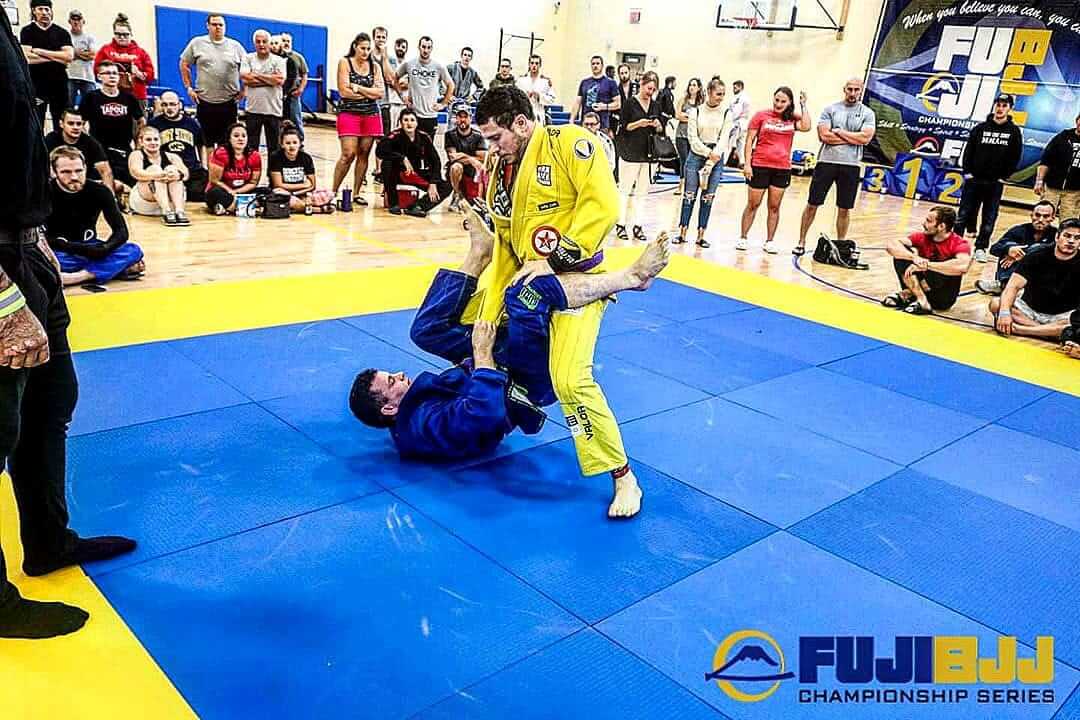Very early into competing I realized that any time I give myself an out by making an excuse, whether it be in talking to others about my match or tournament or internally to console myself for losing, it always resulted in repeating my mistakes. Excuses are easy. They soften the blow of losing. But they lead to future losses.
The very first thing you need to do to become a successful competitor is abandon all excuses. Excuses for losing will invariably lead to future failures.
Some common excuses I see/hear.
- My opponent was ____. Bigger, younger, more athletic, more experienced, a sandbagger. IDGAF. Your opponent wasn’t the reason you lost. Your lack of ability to deal with that opponent on that day was. If they’re bigger than you, use your shorter limbs, speed, agility, flexibility, endurance whatever. I’m not saying that someone being bigger doesn’t make a difference, and in some RARE cases it makes ALL the difference, but if a day 1 white belt that size wouldn’t beat you, your opponent didn’t beat you because of their size. They beat you because of their ability to couple their size with technique, develop better technique. That’s just one example. Don’t use your opponent’s attributes as your excuse. They don’t matter. As soon as you start letting those attributes be your excuse you’re already mentally broken. As soon as you see someone and say “they’re too big” instead of “oh they’re really big, what strategy can I employ to beat them?” you’re screwed and are going to lose.
- I was too ____ (sick, injured, tired, depressed etc…) to train/compete properly. No one cares. No, seriously, no one cares. If you are serious about competing you train and compete through literally all of that. If you literally CAN’T train because of your physical condition watch tape on prospective opponents, build strategies, watch instructional footage. You can also do strength training if you’re injured, building muscle groups in other areas of your body. It’s not a substitute for actual training but at least you’re doing SOMETHING. And if you show up to compete, your physical condition is absolutely no excuse. I don’t remember the last time I competed without an injury, and I don’t remember the last time I prepped to compete that something didn’t go wrong for me. It doesn’t matter. I work around it.
- The ruleset was ____. No. Stop it. Shut up. You knew the rules when you signed up, as did your opponent(s). If you allow the ruleset to be your excuse you’ll never win anything outside of your comfort zone. I’ll admit that I hate certain rulesets, but if I sign up for competitions under those rules it’s on me to win under those rules and if I can’t, making excuses is counterproductive.
- The referee was ____. Unless you were disqualified for doing something that you didn’t do, you can’t really blame the referee if you lose. I get it, there are scenarios in which the referee is blatantly biased. Poor calls happen all the time. Fortunately in jiu-jitsu there are these things called “submissions.” And if you spend your time working to get to those and succeed at getting to those instead of seeking points or advantages, your wins will be definite. There is no referee bias when it comes to submissions.
- I didn’t have a coach there/my coach gave me bad information. Your coach is there to give you a second vantage point. When you’re in a match, it is your job to win regardless of whether or not someone is there to help you do so. I’d prefer to always have someone in my corner who intimately understands my strengths, weaknesses and strategies, but that’s not always possible if you compete frequently. As soon as I allow my success to depend on another person I weaken myself and reduce my likelihood of victory.
This is just the first step to becoming a better competitor. Abandoning your excuses will lead to the ability to analyze your losses in a productive and healthy way that will in turn increase your likelihood to win the next time around. Stay tuned for more insights into successful competition mindsets.
Continue reading… Competition Mindset Part 2: For Best Results Be Prepared

Emil Fischer is a Jiu-jitsu Black Belt and BJJ competitor training under Pablo Angel Castro III at Strong Style MMA in Cleveland Ohio. An avid writer and competitor, Emil has amassed an extensive competition record. Most notably, Emil is a 2 time gold medalist at the IBJJF No Gi Pans, and has a submission victory record of 5-1 at Fight To Win Pro which includes purple belt no-gi light heavyweight championship
Emil’s sponsors are Impact Mouthguards, Cleveland Cryo, The Terphouse, Meerkatsu, Eddys on Coventry and Nottarookie. He is a Ludwig Van and Vanguard Kimono brand ambassador.

